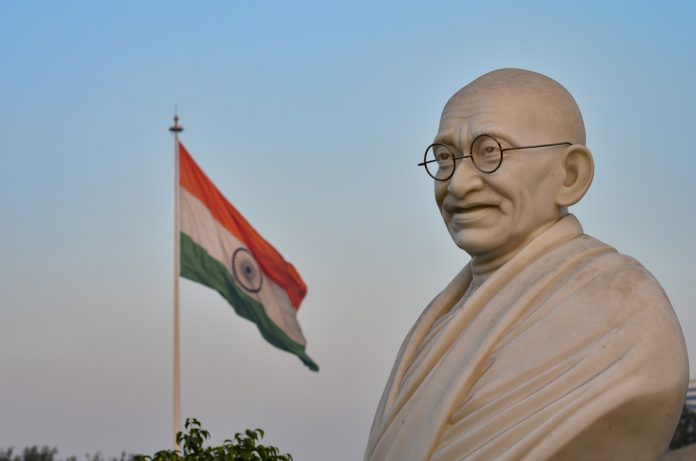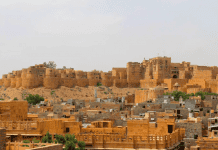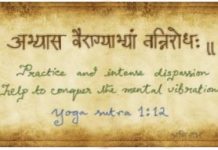Today on Mahatma Gandhiji’s 71st death anniversary, what better tribute could we pay to the father of the Indian nation than taking time out to reflect on what came to be one of his favourite bhajans? These words resonate with those who walk the path of peace and endeavour to imbibe the ideals of humility and respect for all people.
vaiṣṇava jana to tene kahiye
je pīḍa parāyī jāṇe re,
para duḥkhe upakāra kare to ye
mana abhimāna na āṇe re
Call that person a vaishnava who feels the pain of others and uplifts those in misery but does not become conceited in doing so.
sakaḷa loka māṁ sahune vande,
nindā na kare kenī re,
vāca kācha mana nischala raakhe,
dhana dhana jananī tenī re
Such a soul (the vaishnava) respects the whole world and does not criticize anyone; vaishnava is polite and humble and his words and actions are pure. The mother of such a soul is glorious.
sama-dṛṣṭi ne tṛṣṇā tyāgī,
para-strī jene māta re,
jihvā thakī asatya na bole,
para-dhana nava jhāle hātha re
In viewing everyone equally (in an unbiased way), he renounces material ambitions, respects other women like his mother, his tongue never lies, and he does not covet or touches other people’s wealth.
moha māyā vyāpe nahi jene,
dhruda-vairāgya jenā manamāṁ re,
rāma-nāma shu tāḷī lāgī,
sakaḷa tīratha tenā tanamāṁ re
The vaishnava is untouched by the worldly attachments and illusions (moh maya), has detached from the mundane, is attracted to the name of Bhagwan Rama and all pilgrimages are embodied within him.
aṇa-lobhī ne kapaṭa-rahita che,
kāma krodha nivāryā re,
bhaṇe narasaiyo tenuṁ darasana karatāṁ,
kuḷa ekotera tāryā re
Such a soul (the vaishnava) is devoid of greed and deceit, is not touched by lust or anger. Narsaiyo – a reference to (self) Narsinh Mehta, who composed the bhajan – reflects that meeting such a soul liberates one’s lineage and forefathers for 71 generations.



















